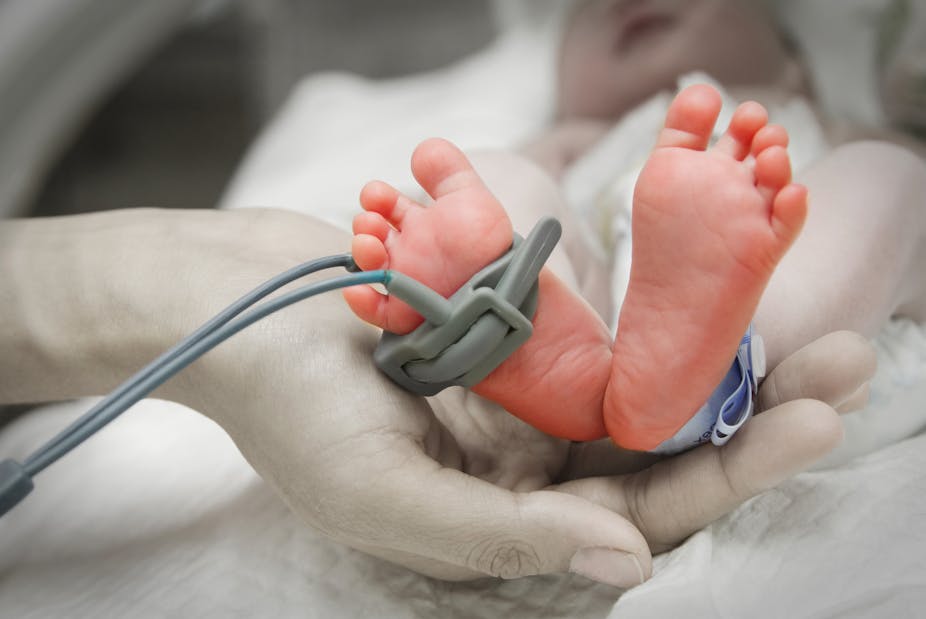In Australia, there are approximately 1,200 infants who die every year before their first birthday, most in the first days or weeks of life. But there are no palliative care services available to these babies or support for their families.
While some of these infants die suddenly and without warning, for about two-thirds death is expected or anticipated. And those caring for the infant have recognised that they are unable or unlikely to survive.
Why the need?
There are two main groups of infants who die in early life. Some have received life support and intensive treatments but have deteriorated despite treatment. Technology can help keep them alive for a short period but is unable to cure them.
Other babies have been diagnosed in the womb as having a very serious problem that is likely to lead to stillbirth or death soon after birth. Whereas once these babies would only have been diagnosed at birth, the widespread use of ultrasound and other forms of screening during pregnancy now mean that they are often diagnosed much earlier.
As an example, some babies are born missing both of their kidneys. Even with the most advanced and invasive medical treatments, they all die within a period of minutes or hours after birth.
Parents who have received a diagnosis like this may choose to abort the pregnancy. But others may not have that option, or may choose to continue the pregnancy for religious or personal reasons.
What happens for those women and their families, who are grieving for a certain death but still carrying a live baby to term?
Many women in this situation have found themselves adrift and alone, and without any professional support. Obstetric professionals and midwives don’t usually have any training in palliative care. And palliative care experts are usually based in adult hospitals and have no links to maternity centres.
The absence of palliative care
In the last three to four decades, palliative care – end of life care that’s focused on relieving and preventing suffering – has moved from the margins of health care to its mainstream. And it is now well accepted that specialised teams have much to offer patients in the last phase of their lives.
Palliative care offers a holistic approach addressing the physical, psychological, spiritual, emotional and social needs of dying patients. Although there are still gaps in the provision of such care to adults in Australia, there are now palliative care services in most communities and major hospitals.
But there are several barriers to the provision of perinatal palliative care. They include a simple lack of awareness of the problem and of the needs of these infants and their families, and negative attitudes, including implicit and sometimes explicit criticism of women who choose to continue their pregnancy in the face of certain death for their infants.
What can be done?
There are several potential solutions.
First, there’s a need to acknowledge that palliative care is important for foetuses and newborn infants with life-limiting illnesses – just as it is at any other age.
Second, there’s a need for research into the needs of families of dying infants in Australia, and into how best to support them. We also need education in palliative care for those involved in the care of pregnant women and newborn infants.
Finally, and most importantly, we need to ensure that pregnant women and newborn infants wherever they are cared for in Australia are able to access perinatal palliative care if required and desired.
The history of the development of palliative care is a tale told backwards. Several decades ago we started to acknowledge the needs of adults and the elderly who were approaching the end of their life.
Later, there was recognition that children die too, and have their own very special needs. And we are now reaching palliative care’s final frontier – the needs of infants and foetuses who are dying before they have even been born.
We cannot always cure babies with serious illnesses, but we can always care for them. And for those families who have only a short time with their newborn infant, that can make all the difference.
Families seeking support in situations like the ones discussed in this article can contact Pregnancy, Birth and Baby helpline on 1800 882 436.
Click here for perinatal palliative care resources (supported by Catholic Health Australia).

